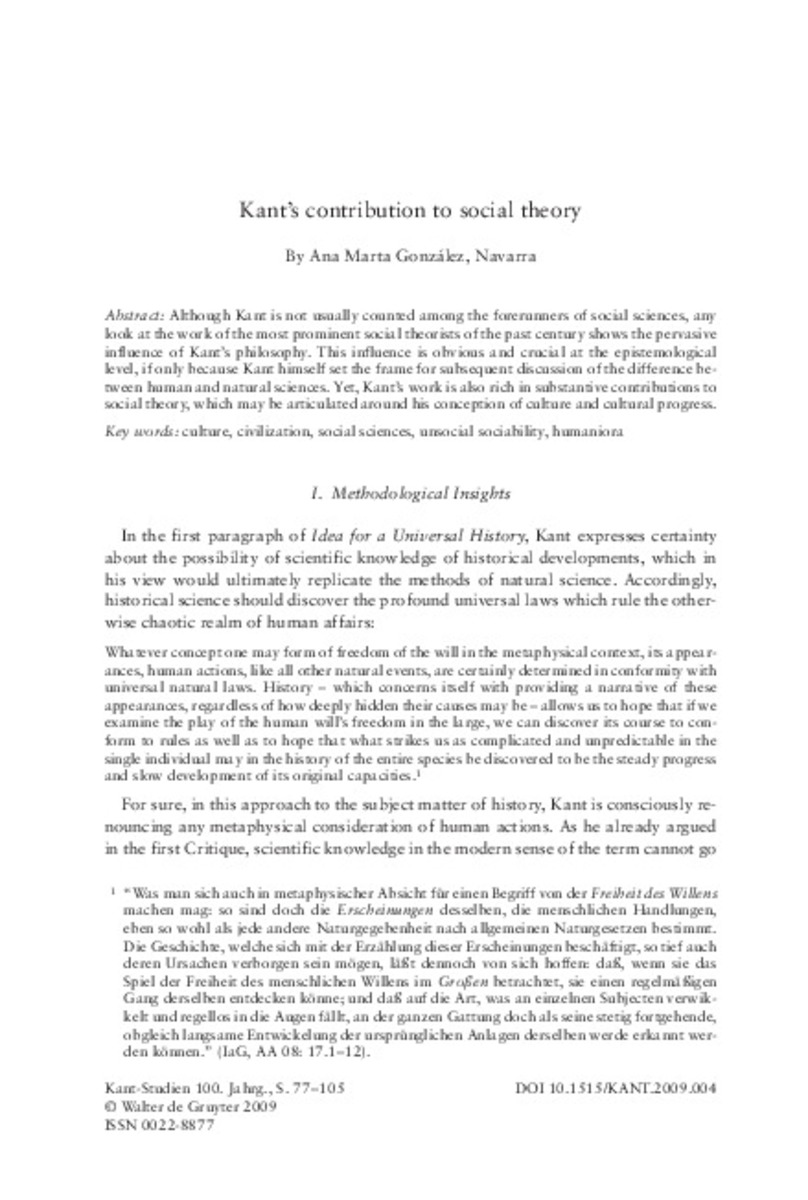Full metadata record
| DC Field | Value | Language |
|---|---|---|
| dc.creator | González, A.M. (Ana Marta) | - |
| dc.date.accessioned | 2012-05-22T08:19:47Z | - |
| dc.date.available | 2012-05-22T08:19:47Z | - |
| dc.date.issued | 2009 | - |
| dc.identifier.citation | González, A.M. (2009). ""Kant's contribution to social theory"". Kant-Studien 100. Jahrg., S. 77–105 | es_ES |
| dc.identifier.issn | 0022-8877 | - |
| dc.identifier.uri | https://hdl.handle.net/10171/22134 | - |
| dc.description.abstract | Although Kant is not usually counted among the forerunners of social sciences, any look at the work of the most prominent social theorists of the past century shows the pervasive influence of Kant’s philosophy. This influence is obvious and crucial at the epistemological level, if only because Kant himself set the frame for subsequent discussion of the difference between human and natural sciences. Yet, Kant’s work is also rich in substantive contributions to social theory, which may be articulated around his conception of culture and cultural progress. | es_ES |
| dc.language.iso | eng | es_ES |
| dc.rights | info:eu-repo/semantics/openAccess | es_ES |
| dc.subject | Philosophy of culture | es_ES |
| dc.subject | Culture | es_ES |
| dc.subject | Civilization | es_ES |
| dc.subject | Social sciences | es_ES |
| dc.subject | Humaniora | es_ES |
| dc.subject | Unsocial sociability | es_ES |
| dc.subject | Philosophy of social sciences | es_ES |
| dc.title | Kant's contribution to social theory | es_ES |
| dc.type | info:eu-repo/semantics/article | es_ES |
| dc.type.driver | info:eu-repo/semantics/article | es_ES |
| dc.identifier.doi | https://doi.org/10.1515/KANT.2009.004 | es_ES |
Files in This Item:
Statistics and impact
Items in Dadun are protected by copyright, with all rights reserved, unless otherwise indicated.






